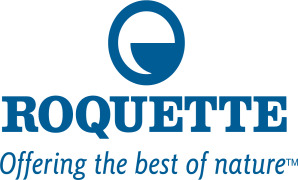News
Waste not: The growing trend of upcycled ingredients
16 Sep 2019Food waste is a major challenge for the planet as a whole, and for food manufacturers specifically. Now more and more companies are looking at ways to reuse waste stream ingredients, upcycling them to add value to new foods and beverages.
The UN Food and Agriculture Organization (FAO) estimates that one third of all food produced globally is either lost or wasted, whether during farming and production, or at the retail, manufacturing and consumption level. This waste is not only an economic problem, but also is environmentally disastrous. It adds to carbon emissions, and the production of so much unused food means that other precious resources are wasted, such as land, agricultural inputs, energy and water.

During food processing, waste products include those that remain after the extraction of oil, starch, juice and sugars from crops, animal-based wastes like bones, offal and hides, and waste from dairy processing, such as whey protein from cheese making. While the FAO acknowledges that the best way to reduce the economic and environmental impacts of food waste is to prevent wastage to begin with, it also suggests finding new value-added applications for products that are discarded. Its suggestions include using coffee grounds to grow mushrooms, and using tropical fruit waste in biodegradable packaging – and many companies are coming up with new ways to improve the sustainability of the food supply chain.
Israeli ingredients company Frutarom Health is among the latest to find a new use for products that would otherwise have been discarded. It has developed an organic soy isoflavone ingredient from soy germs, which are currently not used in soy-based beverages, helping cut waste from the production process. The resulting ingredient can be used in a range of applications, including shakes, baked goods, pasta, nutrition bars and confectionery.
Other companies active in the area include FlaNat Research Italia, which recovers nutrients from agro-food by-products to produce botanical extracts for use in nutraceuticals, and Scelta Mushrooms, which produces salt-enhancing extracts from mushroom waste.
Meanwhile, a European Institute of Innovation and Technology (EIT) platform aims to work with industry to reduce waste through a circular bio-economy for healthier foods and ingredients. Members of the EIT Food community include researchers, manufacturers, retailers, and ingredient companies, including Givaudan, Roquette, DSM, Doehler, Puratos and AlgaTechnologies.
Beyond suppliers, many major food and beverage manufacturers have pledged to move toward biodegradable packaging and are exploring food waste streams for potential raw materials, including big names like Nestlé Waters, Coca-Cola, Danone and PepsiCo.
It is an approach that is likely to be good for business too. Euromonitor International has found that consumers are becoming increasingly willing to pay more for eco-friendly food, and a growing proportion say that recyclable packaging influences their food and drink choices.




